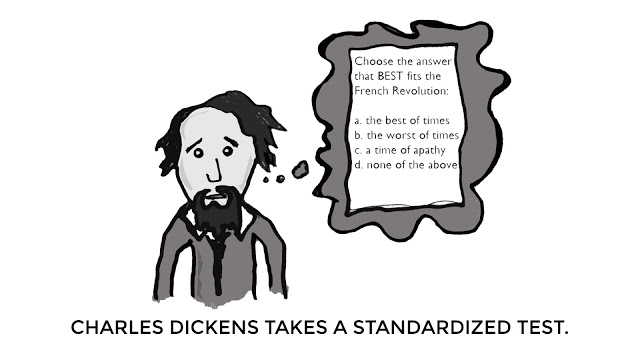It’s easy to bust on standardized tests. They suck. They’re boring. They’re virtually meaningless. They kill instructional time. But what’s the alternative? If we’re not using multiple choice tests, what are we using? If we want a more creative classroom, what types of assessments exist that tap into creativity?
The following are ten creative alternatives:
- Portfolios: These are a great way to show mastery, growth and future goal-setting. (Check out Five Tips for Student Portfolios for more thoughts)
- Assessment Conferences: I use three types of student conferences. One is aimed at self-reflection, another at giving targeted help and a third at helping students make sense out of where they are according to the standards.
- Standards Grid: This is a simple grid that allows students to make sense out of where they are according to the standards.
- Peer Audio Feedback: Here students give audio feedback on work. They can use the voice recorder app or something like Voice Threads. One thing that’s worked well for me has been for students to use the 20 minute peer feedback system and record it so that they can listen to the feedback in the future.
- Social Media Discourse: Similar to the last one, this is the idea of posting one’s work to social media (or an LMS) and offering peer feedback. We use discourse stems to help guide the conversation. In some cases, a Google Doc works well as an annotation tool.
- Self-Reflection Forms: The cool thing about Google Forms is that students can leave text-based self-reflections but also fill out self-reflection surveys. It provides a layer of data to something that is inherently subjective.
- Concept Maps: One thing I love about concept maps is that you get a chance to see what a student is thinking and what connections are being made.
- Reflective Blogs: This works well with longer projects. The chronological nature of blogging means students can show their growth as they reflect along the way.
- Student Tutorials: When students produce their own tutorials they show that they have mastered a skill enough to be able to show it to others.
- Products: I’m a fan of design thinking and the idea of students developing an actual product to show what they are learning. We use rubrics and self-reflection questions through the various phases of the design thinking cycle.
